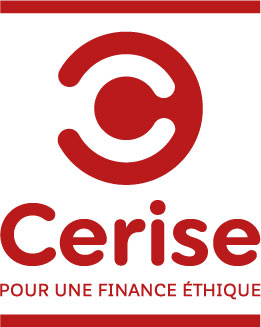NGOs
From the start, the EMP looked to involve some key field actors in microfinance into the programme at the academic and internship level. The NGOs brought their know-how and their long field experience to the EMP.
ADA

ADA is a non-governmental organisation based in Luxemburg, approved and cofinanced by the Luxemburg Directorate for Development Cooperation and Humanitarian Affairs and is placed under the High Patronage of Her Royal Highness the Grand Duchess Maria Teresa. Since 1994, ADA has been working with Microfinance Institutions (MFIs) by offering them a unique combination of financial support and customised technical services. MFIs working with ADA also gain access to a valuable network of public and private support organisations, alternative financial institutions, microfinance rating agencies and international development agencies.
Over the past 20 years, ADA has been dedicated to building and catalysing the financial inclusion of populations excluded from conventional banking channels in developing countries.
ADA empowers microfinance institutions and networks. Through the Luxembourg Microfinance and Development Fund, ADA also help them obtain the funding necessary for their sustainable growth. ADA focuses on the development of innovative inclusive financial services, on capacity building and on action research.
ADA put its expertise to use in areas including youth financial inclusion, access to green energy through microfinance, microinsurance, and reinvested savings through remittances for migrants. ADA also puts its know-how forward to individual States and collaborate with them to support their inclusive finance expansion strategies.
For more information: www.ada-microfinance.org
BRS

BRS (Belgian Raiffeisen Foundation) is a not-for-profit organisation specialised in the field of microfinance and micro-insurance. “BRS is convinced that savings, credit or microinsurance should not be seen as an objective as such, but rather as a resource not only to increase welfare but also to underline human welfare.
Unique position: offering finance, advice and training
BRS is the international wing of Cera and is closely linked to the KBC group. This allows BRS to tap into a valuable source of banking and insurance know-how. A group of KBC managers and executives volunteer their expertise and experience to BRS as consultants. They assist and advise their fellow bankers in Africa and Latin America at strategic moments. Most of the programs are realised in close collaboration with the Belgian NGO-sector.
With its up-to-date knowledge of banking and insurance combined with its years of practical experience in the field, BRS has the perfect know-how in-house to create specific training material and to offer courses on micro-financing, both in the southern and northern hemis-pheres. The topics addressed include the cooperative concept, savings, credit, insurance and financial analysis. This makes BRS more than simply a financier of projects, but rather a true partner, that counsels and assists start-up organisations during the growing pains and other problems.
Background
The difficulty in accessing financial services in developing countries is reminiscent of the situation faced by small-scale farmers in our country at the end of the 19th century. At that time, F.W. Raiffeisen’s savings and loan cooperation offered a way out of the vicious circle. CERA Bank arose from this in Belgium. In 1992, on the Bank’s one hundredth birthday, the Belgian Raiffeisen Foundation, or BRS for short, was created in order to support these organisations. Since then, the NPO has grown into one of the important professional Belgian players in the area of microfinancing and microinsurance.
For more information: www.brs.coop, www.microfact.org
CERISE

CERISE was initiated in 1998, by four french organisations providing technical assistance to MFIs in the developing countries : the CIDR (Centre International de Développement et de Recherche, Autrêches), the CIRAD (Centre de Coopération Internationale en Recherche Agronomique pour le Développement, Montpellier), the GRET (Groupe de Recherche et d’Echanges Technologiques, Paris) and the IRAM (Institut de Recherches et d’Applications des Méthodes de développement, Paris). The CNEARC jointed CERISE in 2004.
Its creation answered to two preoccupations : – in the fast growing microfinance world, the french players were evolving in a relative isolation between themselves but also if compared with the existing international networks ; this isolation was preventing the sharing of experiences and know-how – the acquired experience by the players located in the North is rich and diversified but stays badly valorised.
In this context, the creation of CERISE pursues an opening and structuring process of the french microfinance players. It aims to offer a common work space to the member’s organisations and facilitate the encounters with other players worldwide.
For more information: https://cerise-spm.org/en/
SOS Faim

SOS Faim works primarily in the rural world. In a spirit of partnership we support southern associations which develop their own projects to improve the living conditions of local populations. Those are mainly peasant movements and microfinance organizations.
In Belgium, SOS Faim works towards informing and mobilizing public opinion to fight problems and injustices plaguing the countries from the South. To this end, we launch public awareness campaigns and we publish two magazines (Défis Sud, Dajaloo) and several information bulletins. Moreover, we organize conferences and participate in numerous events.
SOS Faim has a general assembly and a board of directors (elected for three years). Its president helped by a treasurer supervises the financial management of the organization. An external auditor checks our accounts annually. To find out more about our activities and our financial statements you can read our activity report available online.
For more information: http://www.sosfaim.be/